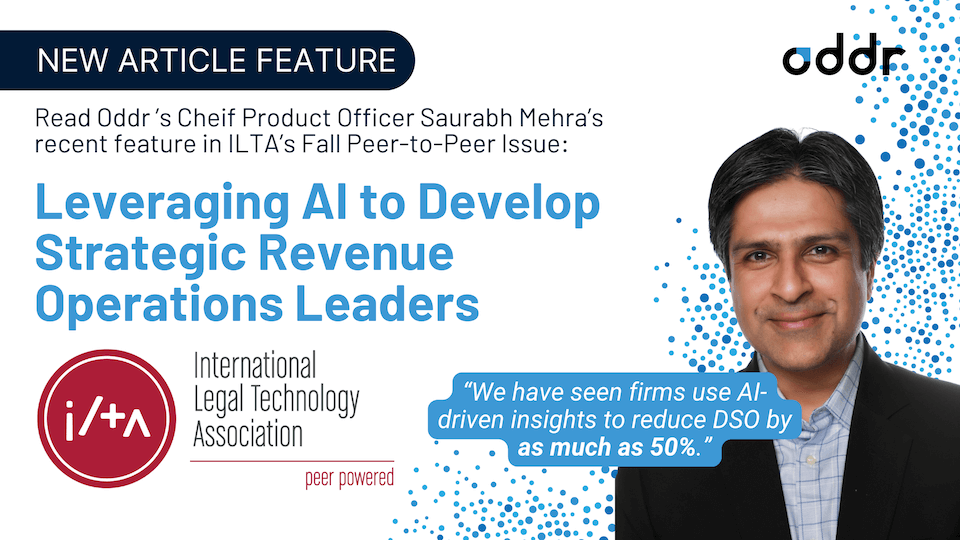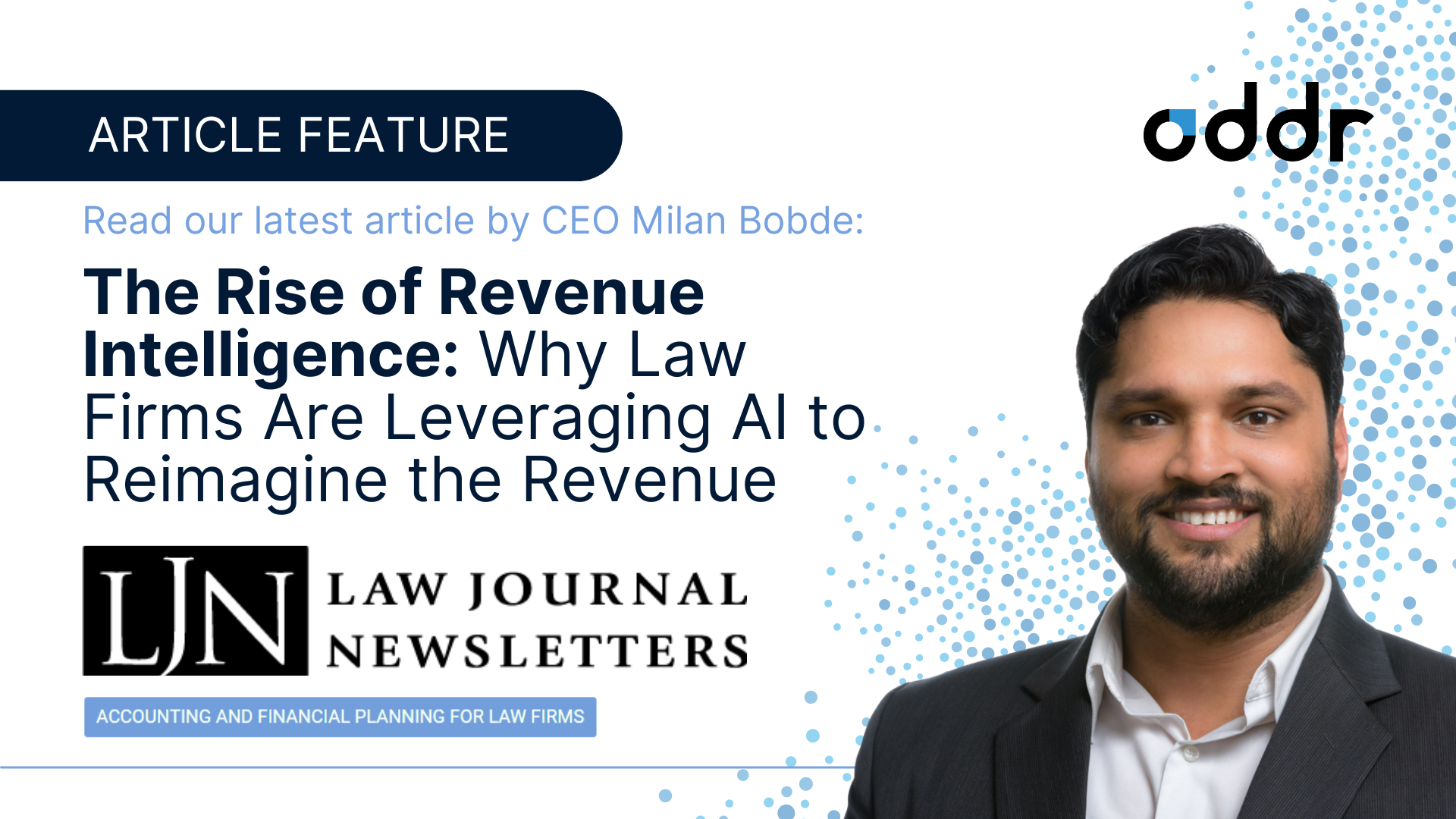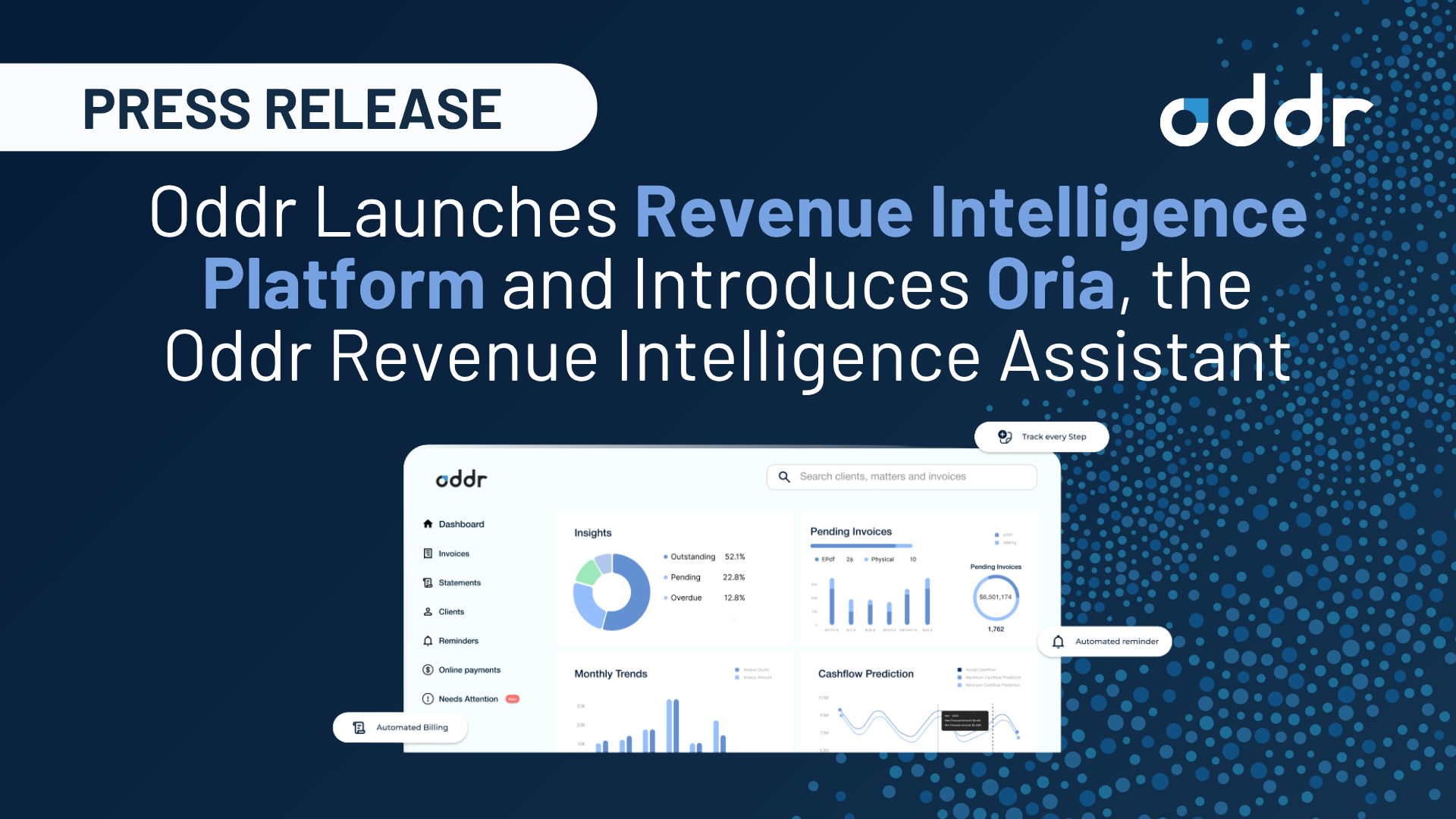Leveraging AI to Develop Strategic Revenue Operations Leaders

.avif)

Leveraging AI to Develop Strategic Revenue Operations Leaders
Legal technology is undergoing a paradigm shift, where firms are no longer satisfied with incremental fixes and point solutions. Instead, they are seeking transformation: of systems, workflows, and outcomes. Nowhere is that transformation more urgent, or more impactful, than in how firms manage the revenue lifecycle.
For too long, billing and collections have operated in silos, held together by legacy systems, spreadsheets, and reactive workflows. Invoices disappear into email inboxes. Aging reports deliver bad news too late. Clients are frustrated. Finance teams are overworked. And revenue is delayed or lost altogether. The solution encompasses more than simply implementing new software. It involves a new approach: Revenue Intelligence.
Revenue Intelligence describes a fundamental rethinking of how firms manage financial operations. Revenue Intelligence is powered by end-to-end technology platforms that unify billing, collections, payments, and cash flow forecasting. It blends automation with AI, providing law firms with real-time insight into where revenue is flowing—or getting stuck—and helping them take action before issues escalate.
This is no longer aspirational. It is happening now, and the firms adopting it are gaining a measurable competitive edge.
From Visibility Gaps to Predictive Power
Let me be clear, law firms need more than automation. They need visibility. Visibility does not occur when billing is in one system, collections in another, and payment tracking in a separate system entirely.
Dozens of firms tell the same story: they know something is wrong but cannot identify the issue. For revenue operations professionals, this lack of visibility keeps them in a reactive role. With AI-driven insights, they shift from firefighting to forecasting —a hallmark of strategic leadership. AR is growing. Write-offs are increasing. Collection teams are drowning in follow-ups. But without centralized data and intelligence, they are forced to guess, or worse, react too late. This is where end-to-end platforms can make a significant difference.
When the entire revenue lifecycle is managed in a single system, firms gain complete, real-time visibility across the billing-to-cash continuum. They can see which invoices have been viewed, which clients are out of pattern, and which collectors are overloaded. They are not just responding, they are anticipating. This shift from reactive to predictive is the heartbeat of Revenue Intelligence.
Why Point Solutions Fall Short
Many firms have tried to modernize with best-in-breed tools. A time-entry tool here. A collections dashboard there. Maybe a bolt-on payments app. But that approach creates new problems: fractured workflows, broken handoffs, and inconsistent data.
The result? More systems to log into. More things to reconcile. And even less clarity.
In contrast, unified platforms treat revenue management as a single, connected operation. Billing is not just a starting point. It is the trigger for a proactive, intelligent cycle that includes automated dispatch, smart reminders, behavioral insights, and seamless reconciliation. It is like upgrading from a dozen traffic cameras to a real-time GPS for your firm's revenue. You are not just seeing snapshots, but instead, navigating with foresight.
AI as a Strategic Enabler
AI has been over-hyped in many corners of legal tech. But when it comes to revenue operations, their impact is tangible and immediate.
In an intelligent revenue platform, AI acts as a co-pilot to your finance team. It can:
• Draft follow-up emails tailored to the client's tone and history.
• Flag invoices that break historical payment patterns.
• Prioritize collector workload by risk and potential return.
• Summarize client payment activity across months of touchpoints.
This is about elevating, not replacing people. By surfacing insights, revenue operations professionals can step into strategic conversations with CFOs, partners, and clients, guiding firm-wide growth decisions. AI lets your teams focus on high-impact work, while it handles the noise. We have seen firms use AI-driven insights to reduce DSO by as much as 50%.
Platform as Infrastructure, Not Just a Tool
I recommend that CFOs and revenue leaders to stop thinking of billing software as a tool. Start thinking of your revenue platform as infrastructure. Just as firms invest in cloud-based document management or secure collaboration tools, they need to invest in scalable, intelligent platforms that anchor their financial engine.
A true platform is more than a digital filing cabinet. It is a living system that:
• Captures and analyzes every step of the revenue journey.
• Surface insight before revenue leaks.
• Connects attorneys, finance, and clients in a seamless workflow.
• Adapts dynamically to client billing preferences, OCGs, and internal SLAs.
This is how you move from "we sent the invoice" to "we know the outcome—and we know what to do next."
The ROI of Unification
Let's talk numbers. Firms that adopt an end-to-end revenue platform routinely report:
• 30–50% reduction in DSO
• Up to 20% reduction in write-offs
• Improved staff productivity, with fewer manual touches per invoice
• Higher realization rates, even in volume-based practices
• Greater client satisfaction, due to more transparent billing and easier payments
But the most powerful ROI isn't just financial—it's strategic. Firms with unified revenue platforms can model cash flow with confidence. They can plan for growth without fear of revenue drag. They gain agility in responding to client demands, economic shifts, and changes in internal capacity.
In short, they gain control.
The Future Is Designed - Not Defaulted
The traditional approach to managing revenue was reactive, fragmented, and frustrating. The new way is predictive, intelligent, and client-aligned. And the difference is not just in how fast you get paid—but in how well your firm performs. Law firms need platforms that think like they do, adapt to the nuances of legal work, empower finance teams with intelligence, and make it easier, not harder, for clients to pay.
This is Revenue Intelligence in action. And the firms that adopt it collect faster and operate more efficiently. The future of revenue is not managed in silos. It is managed on purpose. And the professionals leading this shift are strategic leaders. By harnessing AI-driven Revenue Intelligence, revenue operations professionals are helping their firms not only collect faster, but also grow smarter.



.svg)


